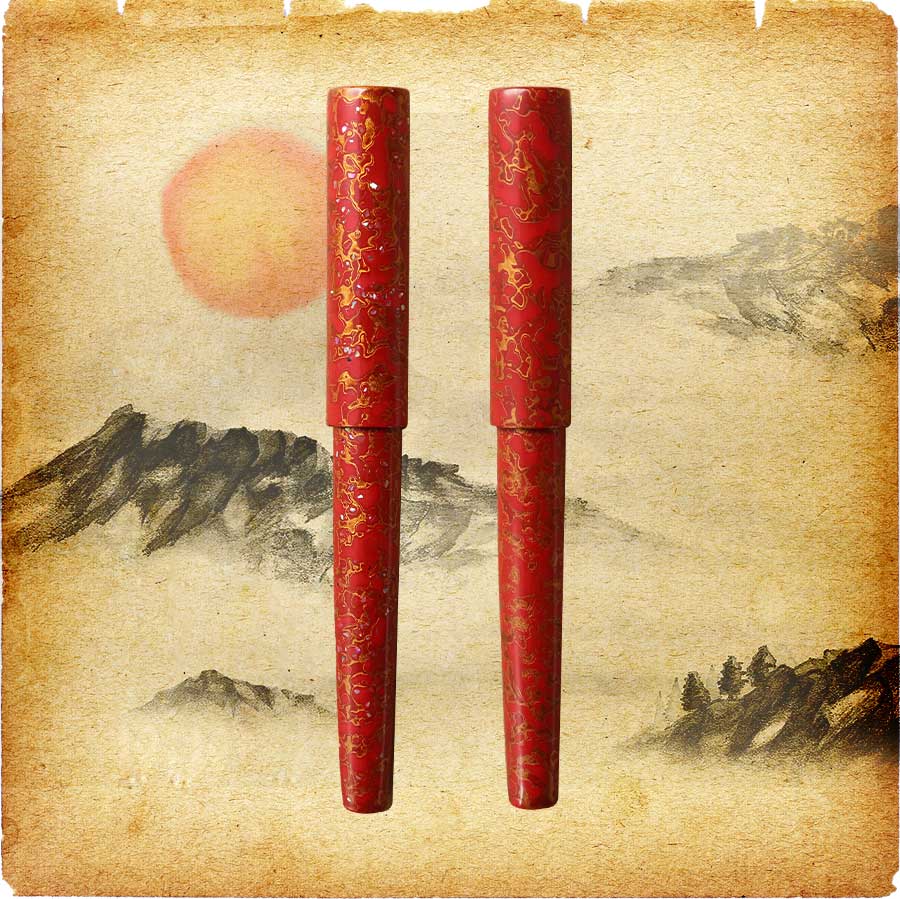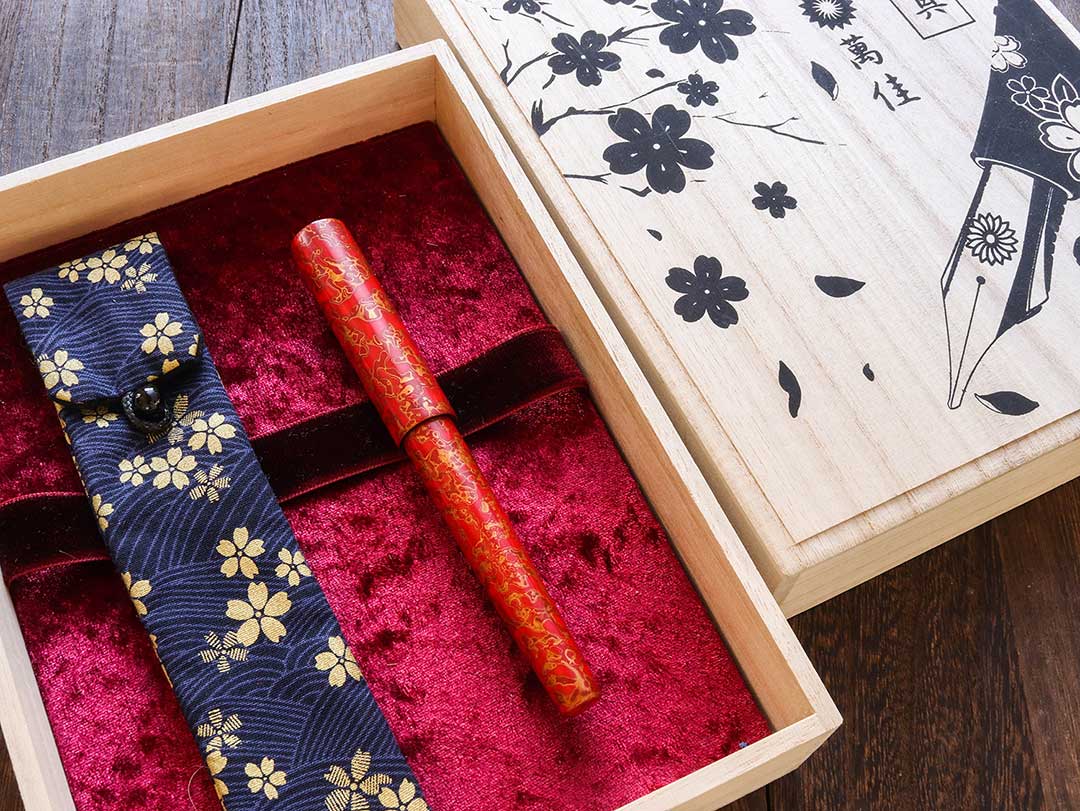Sekai - Saihi Urushi - Aka-age
Sekai - Saihi Urushi - Aka-age
Couldn't load pickup availability
Description
Description
Important Notes: The making of Saihi-nuri requires many handcrafting steps and a carefully moderate polishing step in the end to preserve the distinctive patterns of the art. Therefore, a few traces of this painstaking process can be observed on the pen's surface, creating an artistic charm of this technique. Please do not mistake this with defects.
Saihi Urushi
Flourished in Huizhou (徽州), China since the Song Dynasty, Saihi Urushi was considered a royal art - a tribute only to the imperial that only a few common citizens can even lay hands upon. For many generations, the artisans of Huizhou guarded this technique so secretly that there were even times when rarely anyone practiced it during the 20th century.
Yet, fortunately, with the help of our passionate artisans in Fuzhou, we have now managed to witness and bring this art to you in the shape of the Sekai fountain pens.
The art of Saihi Urushi
The key of Saihi-nuri not only lies in the treacherous and painstaking process but even more, in the distinctive material - Raw Natural Urushi. Saihi Urushi can only be made by Raw Natural Urushi, which is known for its rich color, bold texture, and semi-matt finish. With its distinct nature, Raw Urushi can enhance the durability of the natural wooden base, and create an extraordinary feel for the pen as well. As time goes by, the finish will grow even brighter and glossier with consistent use, resulting in a beautiful aging process that you can appreciate for many years to come.
The traditional Saihi-nuri technique on lacquerware is a sophisticated process. On fountain pens, even though adjusted, crucial steps and standards need to be followed:
- First, the sap is collected, filtered, and prepared for the lacquering process.
- After the base layer is applied, the ridges are formed. Since this step will define the frame of the final finish, each ridge is applied carefully one by one, creating a unique flow and pattern on each piece.
- Gold Leaf 金箔 is followed to add a shimmering effect for the gold pattern later on.
- Next, multiple layers of colored Urushi are applied until all ridges are covered fully, which can take up to 30 ~ 40 layers. Since each layer can only be added after the previous is completely dried, the process can take from 3~4 months of attentive work.
- Now, the pen is ready for the last and most crucial step - Sanding and Polishing. The final result lies in the artisan's skill, whether or not they might overwork it and lose the gold pattern in this step.
Wancher Sekai - Saihi Urushi: A combination of traditional arts
On top of the traditional Saihi-nuri method, the skillful Fuzhou artisans has also been experimenting other arts during the crafting process as well. This time, we are astounded by their Saihi-nuri artwork with the decoration of subtle Raden inlays. These two elements complements surprisingly well and unexpectedly creates a mesmerizing finish that we have rarely seen anywhere else.
There will be four color design for you to choose from: Aka-age, Ao-age, Murasaki-age, and Kuro-age. Each color will come with two editions: Original and Raden
Specifications
Material & art: Wood, Saihi Urushi, Raden (Raden version only)
Filling mechanism: Converter or Cartridge (European International Standard)
Nib: #6 Jowo stainless steel, Wancher 18K gold
Feed: Plastic, ebonite black, ebonite red
Size & Shape
Coming Soon
Packaging
Traditional Japanese Wooden Box + Cartridge & Converter + Instructional Materials
Share


























